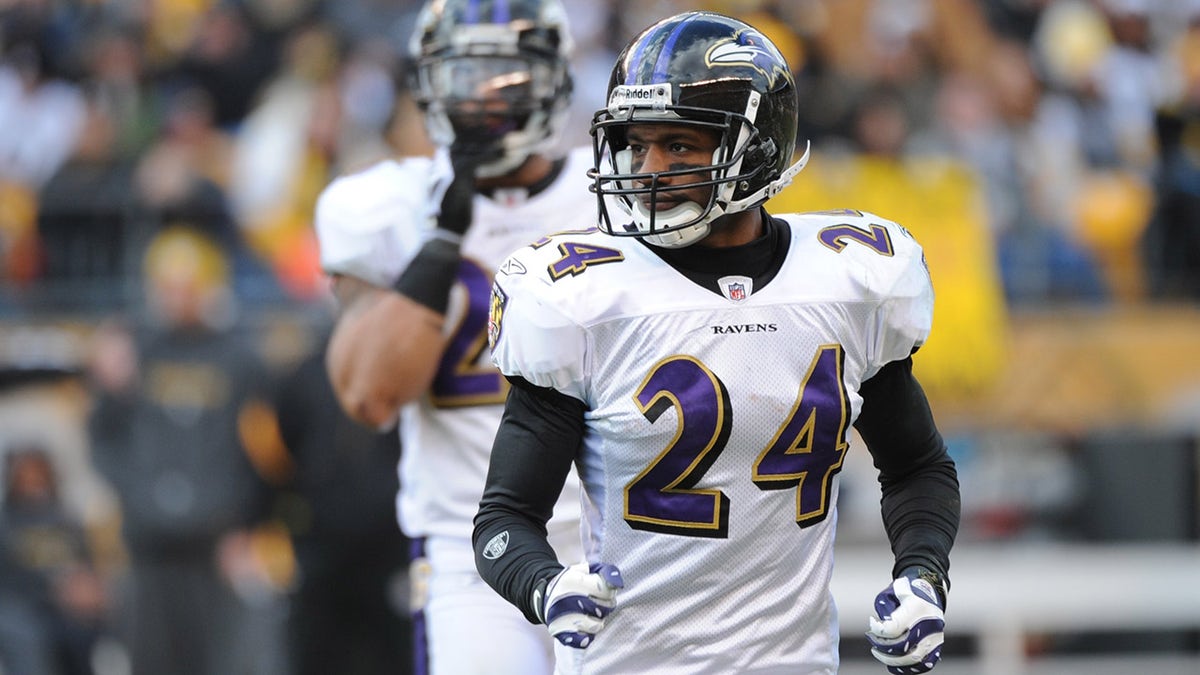Fox News Flash top sports headlines for February 29
Fox News Flash top sports headlines are here. Check out what's clicking on Foxnews.com.
The NFL franchise tag has long been a topic of discussion among players in the league, but one former player has the latest hot take on the controversial contract situation.
Domonique Foxworth, a former defensive back in the league, believes the franchise tag is "un-American."
"So is the salary cap," the ESPN analyst said on the "Ross Tucker Football Podcast" Monday. "Like all of these are actually illegal. They violate antitrust law."
CLICK HERE FOR MORE SPORTS COVERAGE ON FOXNEWS.COM

Domonique Foxworth attends the EPIX Presents "Schooled: The Price of College Sports" on October 8, 2013, in New York City. (Craig Barritt/Getty Images for EPIX)
Foxworth, who used to be president of the NFL Players Association, as well as COO of the National Basketball Players Association, has seen it all from a contractual standpoint in multiple leagues. He explained his case further.
"They only exist because the union exists," Foxworth said. "The funny thing is, in ’93, the way the union was able to get free agency was by de-certifying the union, essentially disbanding the union and forming a trade association and suing the league for their antitrust violations, which include the Draft and all that sort of stuff and not allowing players to have free agency.
"The ironic thing is, upon coming to a settlement, the league required that the players re-form a union, because they needed that union to protect them so they could be allowed to have all these antitrust violations. So, while I think obviously as a former president and leader of two sports unions and very heavily involved, I think the union is very much for the rights of the players. It provides a great deal of protection for the league also. Otherwise, they wouldn’t be allowed to have a draft, or collude in the many ways they are legally allowed to collude."
COACHES INVOLVED IN CAM NEWTON FIGHT REVEAL WHAT LED TO ALTERCATION WITH NFL QB: ‘TYPICAL CAM’
To break it down even further, the NFL, in exchange for allowing free agency and other benefits to players, forced them to recreate their union, so they can have a collective bargaining agreement. And in said CBA is the ability to have the franchise tag among other things, including the NFL Draft and the salary cap.

Cornerback Domonique Foxworth #24, of the Baltimore Ravens looks on from the field during a game against the Pittsburgh Steelers at Heinz Field on December 27, 2009, in Pittsburgh, Pennsylvania. The Steelers defeated the Ravens 23-20. (George Gojkovich/Getty Images)
Of course, the idea of the franchise tag, which isn’t used in any other major sports league in the country, has been a topic players have become disgruntled with, especially in recent seasons.
Star players can’t hit the open market when their contracts are up like in other leagues, with teams able to lock them in for at least another season.
Some teams do that to allow more time to negotiate contracts. However, looking at examples like the New York Giants and Saquon Barkley in 2023, that doesn’t always come to fruition. Barkley eventually agreed to his franchise tag, but other players might want to hold out even going into the regular season, though that would lead to hefty fines.

Domonique Foxworth attends the EPIX Presents "Schooled: The Price of College Sports" on October 8, 2013, in New York City. (Craig Barritt/Getty Images for EPIX)
CLICK HERE TO GET THE FOX NEWS APP
The next time CBA negotiations can occur is six years from now, as the current CBA expires in March 2030 at the end of the league year.


